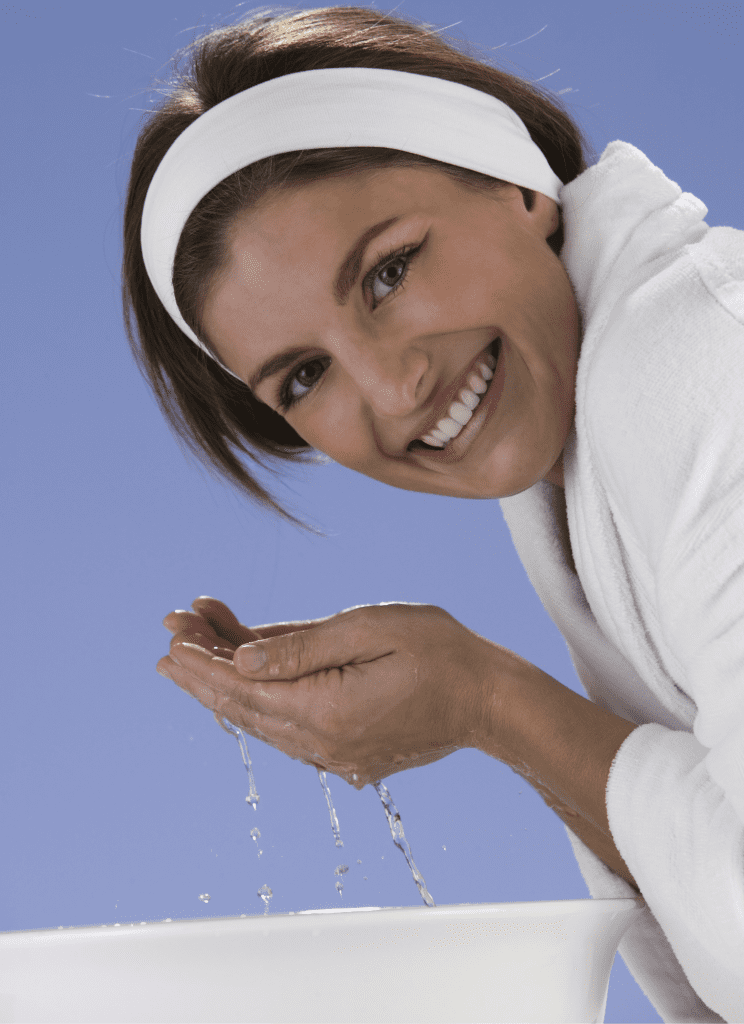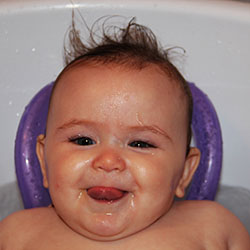
Skin care is vital for all members of the family, regardless of age. Best practices may change depending on the specific needs of each type of skin, so it’s important to keep in mind each person’s specific sensitivities and needs.
Choosing the right winter skin care products
It may be difficult to use one type of product for the whole family. Products marketed for adults often include perfumes, heavy soaps and other potential irritants that are too harsh for younger skin. On the other hand, products for children might not be as effective for teenagers or young adults struggling with hormonal acne or oil buildup. For this reason, each member of the family should match their products to their specific skin needs.
Newborns and children should bathe mostly with water and gentle, extremely mild cleansers used on any dirty areas at the end of the bath. This will help protect the skin’s natural oils. Anything else is overly complicated and potentially irritating. Apply thick moisturizer after patting the face and body mostly dry but leaving the skin a little damp. Applying the moisturizer onto slightly damp skin will help lock in extra moisture, which can be especially helpful as the seasons change and the winter months threaten to wreak havoc on exposed skin.
Teenagers should make sure their skin care products address their specific skin type. Hormonal changes during adolescence lead to acne. Some teenagers struggle with oily skin, while others may continue to have sensitive or dry skin. Teens should choose products without fragrances, beads, foaming ingredients or sulfates. Products should be labeled noncomedogenic and oil free. There is no need for harsh toners or cleansers unless prescribed specifically by a dermatologist, as many include stripping ingredients that can exacerbate dryness and acne and increase sun sensitivity. Teens can consider a spot treatment if the acne is less frequent and more localized.
Adults suffering from dry skin can turn to cleansers approved for dry skin or eczema to help retain moisture. If suffering from oily skin, adults can use cleansers that cleanse the skin more thoroughly. When it comes to keeping skin supple as you age, it’s important to moisturize and consider implementing serums with vitamin C and a retinol product at night to combat the effects of aging. In general, it’s still best to avoid perfumes. Products with many ingredients, marketed in fancy bottles, might not actually help the skin as much as a bland moisturizer. Additionally, products marketed as “natural” may contain many plant-based ingredients that can cause allergies.
In general, skin care products should be as thick, bland and simple as possible. Choose a cream moisturizer over a thin lotion and a simple, mild cleanser over a soap-based or foaming one to enhance the natural skin barrier.
Sun protection is vital for all ages, especially for people in Los Angeles, where cumulative UV exposure leads to skin cancer and premature aging of the skin. Hats and sun protective clothing should be worn. For infants and children, mineral sunscreens with zinc oxide or titanium dioxide are best. Teenagers may adhere to their sunscreen routine better if the sunscreen rubs into the skin easily.
Establishing a winter skin care routine
The most important part of any skincare routine is staying consistent. No products or regimens can work consistently if only used occasionally. Routines are helpful, as they can set the tone of the day for all ages.
Children should be taught to wash their faces daily to remove sweat, dirt and other grime before going to bed. The sooner this can be established, the more likely they will keep up with the routine consistently.
Teenagers should establish a consistent routine to combat skin changes. Teens should wash their faces twice daily. A cleanser with a 2.5%-5% concentration benzoyl peroxide can be used once daily, with a gentle cleanser for the second daily wash. Facial moisturizer with SPF 30 can be applied in the morning, with a sunscreen for the body on other exposed areas of skin. For dry skin, a facial moisturizer can also be applied in the evening.
Adults are likely to have a skin regimen already, but checking all products, brushes and practices is key. Before incorporating any new products, they should be checked for stripping ingredients to avoid skin damage or dryness. Using too many products can lead to skin irritation. Additionally, try not to overapply products when your skin is stressed out, as this can make any irritation, dryness or redness worse. Sunscreen is essential to prevent aging and will reduce age spots and wrinkles, as well as aid in preventing skin cancer.
Each person’s unique skin requires specific care. Paying attention to how your skin feels first thing in the morning, throughout the day, in specific environments and right before bedtime can help you understand what types of products, routines and protection measures are best for your skin. When in doubt, contact your pediatrician, pediatric dermatologist or dermatologist to find a routine that’s best for your skin type.
Marcia Hogeling, M.D., is a member of the Society for Pediatric Dermatology and director of pediatric dermatology at UCLA’s David Geffen School of Medicine.
More tips on skin care HERE.



























